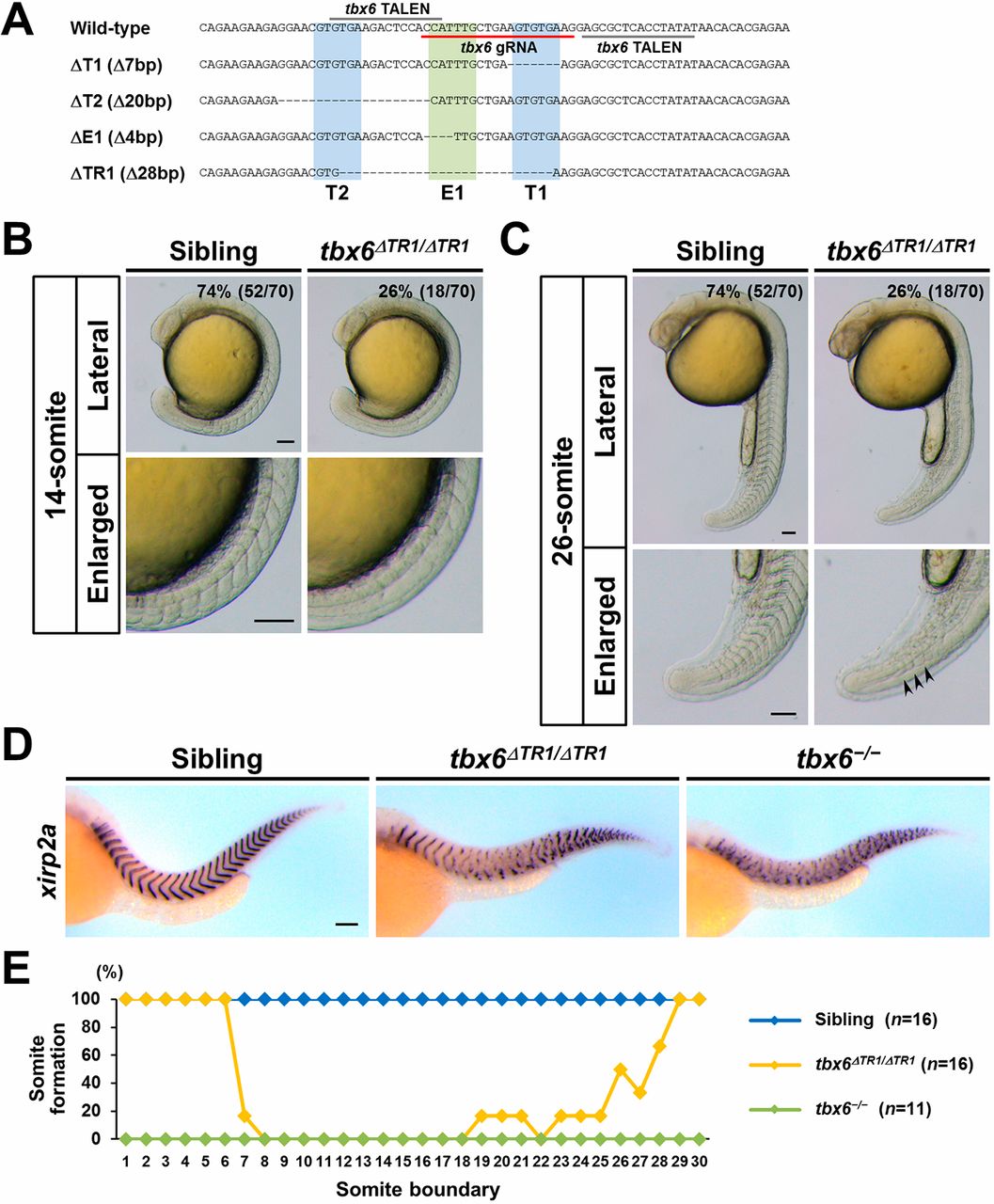Fig. 3
The TR1 located upstream of tbx6 is required for somite segmentation in zebrafish embryos. (A) Introduced deletions within TR1 in tbx6ΔT1, tbx6ΔT2, tbx6ΔE1 and tbx6ΔTR1 mutants. TALEN target sequences used to generate tbx6ΔT1 and tbx6ΔTR1 are indicated by gray lines. gRNA target sequences used to generate tbx6ΔT2 and tbx6ΔE1 mutants are underlined with a red line. (B,C) Live representative images of sibling and tbx6ΔTR1/ΔTR1 embryos obtained from intercross of tbx6+/ΔTR1 heterozygous fish. The percentage of embryos exhibiting the phenotype is shown in the top right corner. tbx6ΔTR1/ΔTR1 embryos exhibited the segmentation defects in the intermediate region of the embryonic body, whereas the phenotype of sibling embryos was indistinguishable from that of wild-type embryos. At the 26-somite stage, the recovery of the formation of the somite boundaries was detectable in tbx6ΔTR1/ΔTR1 embryos (39%, n=7). Arrowheads indicate the boundaries of tail somites in tbx6ΔTR1/ΔTR1. The allele of tbx6ΔTR1 is a recessive mutation, and tbx6ΔTR1/ΔTR1 adult fish are viable and fertile. Scale bars: 100 µm. (D) Expression patterns of a segment boundary marker, xirp2a, in sibling (n=16), tbx6ΔTR1/ΔTR1 (n=16) and tbx6−/− (n=11) at 36 hpf. (E) Distribution of somite boundary formation in sibling, tbx6ΔTR1/ΔTR1 and tbx6−/− embryos. Scoring of the somite boundary formation was carried out as described previously (Kinoshita et al., 2018). The somite number of the improperly formed somites was estimated based on their position in the wild-type embryonic body.

